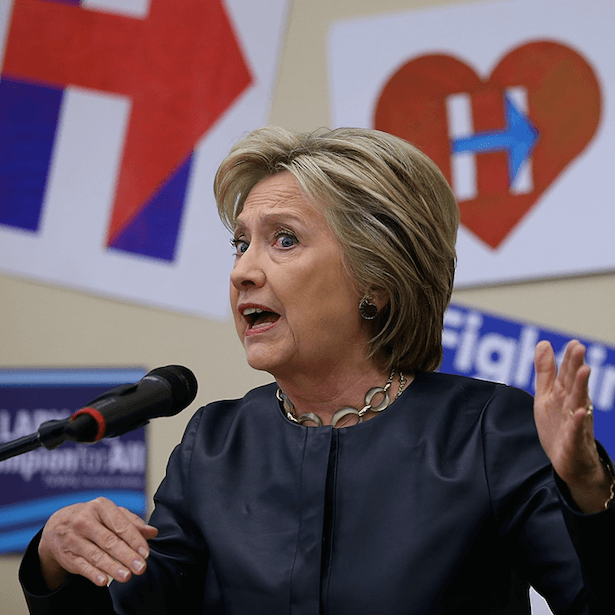The shiny, new Google politics tool means that crucial candidate information, like campaign financing and voting history, is now just a click away to the public. Will this ease of access help engage and educate uninformed citizens or merely reinforce the armchair activism of the digital age?
Just Google, “Who should I vote for?”
When the primary elections and caucuses began in February 2016, Google made it ridiculously easy to keep track of the allocation of delegates amongst the Democrats and Republicans. And it doesn’t even require visiting a webpage.
Instead, the search engine’s users only have to type “[political party] delegates” or “[candidate’s name] delegates” into the search bar and the results, provided by the Associated Press, appear in a neat little chart at the top of the page.
The infographic also lists candidates who have dropped out and distinguishes between superdelegates and pledged delegates. The addition must have attracted a lot of attention because Google is continuing to make the election process — and now what goes on behind the scenes — increasingly transparent.
Campaign finance made simple
Last Tuesday, the search engine premiered a new feature that unveils a comprehensive breakdown of each candidate’s campaign funding.
How much of the finances come from Super PACs? What sector do private donations come from? How much has been received? You can find the answer by simply typing a candidate’s name into the Google search bar.
As you scroll down the page, campaign finance data provided by OpenSecrets.org, becomes visible right alongside the search results, Mic reported.
Though the information has always been accessible on OpenSecrets.org, which is fed statistics by the Center for Responsive Politics, it was far from being common knowledge for the general Internet-surfing population.
Google product managers Jacob Schonberg and Payal Patel explained the tool’s purpose in a blog post officially announcing the new features:
Finding information on campaign funding can be difficult, if not seemingly impossible … So when you search for “donald trump” or “clinton campaign finance,” you’ll see a snapshot of their campaigns’ finance breakdown and be able to dig into interesting insights, like the percentage of funds coming from SuperPACs versus individual donations, or which industries have donated the most to a given candidate.
Democracy is not a spectator sport
Now, since it’s only a matter of clicking “search,” Internet users will passively become more knowledgeable on candidate’s campaign funding sources, stances, and popularity. And unlike the old days, they won’t have to put in much effort to do so.
[postquote]
Atop the campaign finance overview, Google also includes summaries of a candidate’s stance on certain popular issues such as guns and immigration taken from OnTheIssues.org. Additionally, the search engine has included line graphs that reveal to what extent each candidate is “trending” compared to others. Hello, informed citizenry. Or, that’s at least what Google is hoping.
Lotte E. Scharfman, a man who escaped Hitler’s Germany and advocated for voting rights, reportedly coined the phrase, “Democracy is not a spectator sport.”
Today, as Internet “slacktivism” becomes the new form of civic participation, his words have become frighteningly relevant. Being informed is only the first step to becoming an active member of society.
To further citizens’ involvement in the political process, Google must make information transparent while simultaneously encouraging Americans to fact-check what they read and continue the quest to uncover the bigger truth. In other words, Google’s features can’t be viewed as a one stop shop for political information.
The search for facts shouldn’t end here …
According to a 2015 Pew Research Center study, about six in 10 millennials brush up on their political knowledge via news outlets’ postings on social media. A follow-up study reported that only 26 percent of millennials list “politics and government” as one of the top three subjects they find most interesting.
The dilemma associated with passively receiving political news while reading about your friend’s night on Facebook or Twitter is similar to that of Google making what appears to be everything we need to know about a candidate so easily accessible. They are both dangerously convenient and risk discouraging millennials from digging more deeply to discover other facts and dissenting opinions.
That being said, don’t get the wrong idea. Google’s new features are, overall, a wonderful addition to the Internet’s myriad sources on politics. Firstly, they eliminate the difficulty of weeding through reliable and unreliable information — both of which run rampant in the online world.
In addition to creating a more informed voting population, the transparency of the features will make it possible for the public to hold candidates accountable for their words and actions.
Our take
We must remember to proceed with caution because, sometimes, easily accessible news becomes old news too quickly. For too many, learning about politicians isn’t a “been there, done that” type of thing.
The availability of campaign finance information is useful, but it can’t be the endpoint. Instead, the ease of access to these pieces of data should evoke a greater sense of responsibility among the citizenry and a greater commitment to putting words into action.
Have something to add to this story? Comment below or join the discussion on Facebook.
Header image: / Getty









































